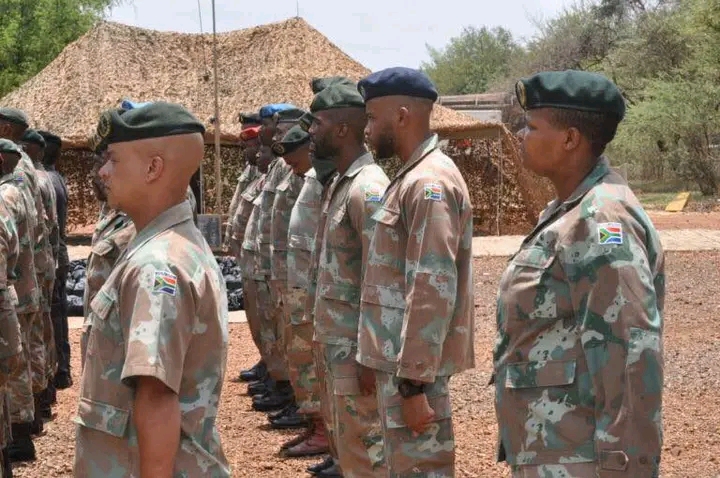By Ollus Ndomu
Groundbreaking as South African Defence Force (SANDF) troops deployed to bolster the Congolese army (FARDC) in the ongoing conflict in eastern Democratic Republic of the Congo (DRC) have surrendered to M23 rebels, marking a significant setback in the regional peacekeeping efforts.
The SANDF soldiers, part of a mission aimed at quelling the M23 insurgency in the eastern DRC, find themselves now in captivity after being ill-equipped and ill-prepared for the intensifying battle against the well-organized rebel group.
Initially deployed to fill the void left by the East African Regional Security Force, led by Kenya, the South African contingent faced daunting challenges in their mission to confront the M23 fighters.
Despite their numbers, the SANDF found themselves outmatched and vulnerable, ultimately falling prey to the relentless advances of the M23 rebels.
President Cyril Ramaphosa’s decision to deploy nearly 2,900 SANDF soldiers, driven by financial guarantees and strategic alliances with DRC President Félix Tshisekedi, now appears to have backfired disastrously.
The rapid deterioration of the situation has raised questions about the wisdom and foresight behind the military intervention.
The casualties suffered by the SANDF underscore the gravity of the situation, with reports of soldiers killed in mortar strikes near the city of Goma adding to the growing toll of the conflict.
As the conflict escalates, the specter of a costly and strategic defeat looms large for South African forces, raising concerns about the future of the regional peacekeeping efforts and the broader implications for stability in the DRC and the surrounding region.



That’s embarrassing. When the Zimbabwean, Namibian and Angolan Forces were in the DRC, they earned the respect of all sides of the conflict. Even the BBC sang praises of them in Kisangani. They were battle tested. South Africans and Malawians have never fought in any war of note. And Tanzania, being wholly Tutsi was a wrong choice for partner in this conflict.